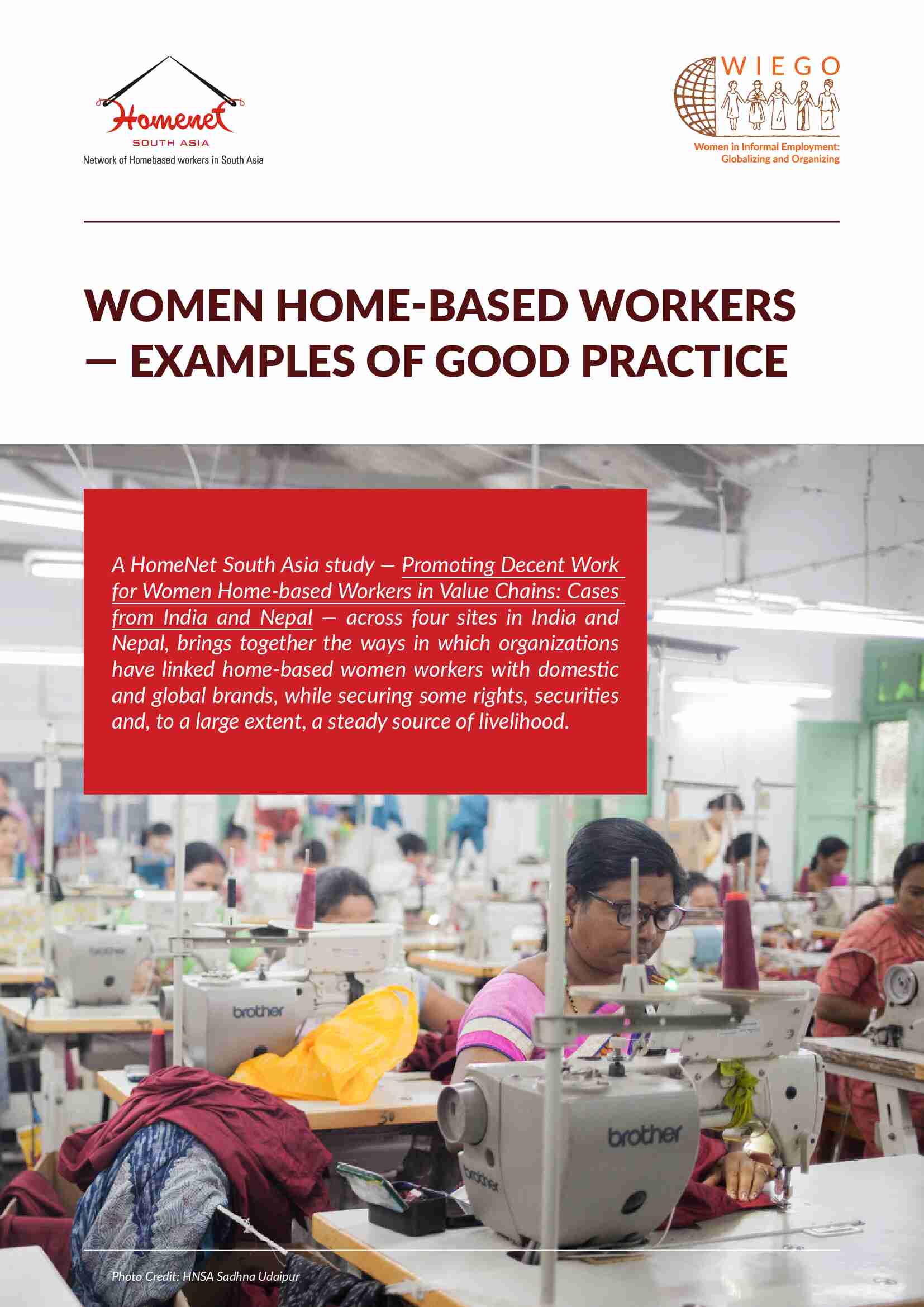Examples of Good Practice in Home-Based Worker Organizing for Decent Work in Supply Chains
Pocket Tools for Homeworkers Working in Garment Supply Chains is part of a series produced by the Home-based Workers Organizing for Economic Empowerment project funded by the UK's Foreign, Commonwealth & Development Office's Work and Opportunity for Women (WOW) Programme. Written by HomeNet South Asia and WIEGO staff, the pocket tools are designed to provide easy access and practical information. The deck of 11 tools applicable to home-based workers aims to help with organizing, awareness-raising, and recording information, and to support home-based workers in locating themselves in the global supply chain. Themes include organizing models, global statistics, contractual standards and gender-based violence. The pocket tools were developed for use by homeworkers in appreciation of the importance of their taking the lead in identifying, documenting and safeguarding their rights and livelihoods.
This document summarizes a HomeNet South Asia study — Promoting Decent Work for Women Home-based Workers in Value Chains: Cases from India and Nepal — across four sites in India and Nepal. It brings together the ways in which organizations have linked home-based women workers with domestic and global brands, while securing some rights, securities and, to a large extent, a steady source of livelihood. The study explored “good practices” — that is, the strategies and innovative practices put in place by the social enterprises, leading to an improvement in the conditions of work. This includes higher piece rates/earnings, better access to work, improved access to social security, learning more skills, enhanced financial literacy and improved access to government benefits.
View list of all: Fact Sheets/Infographics

